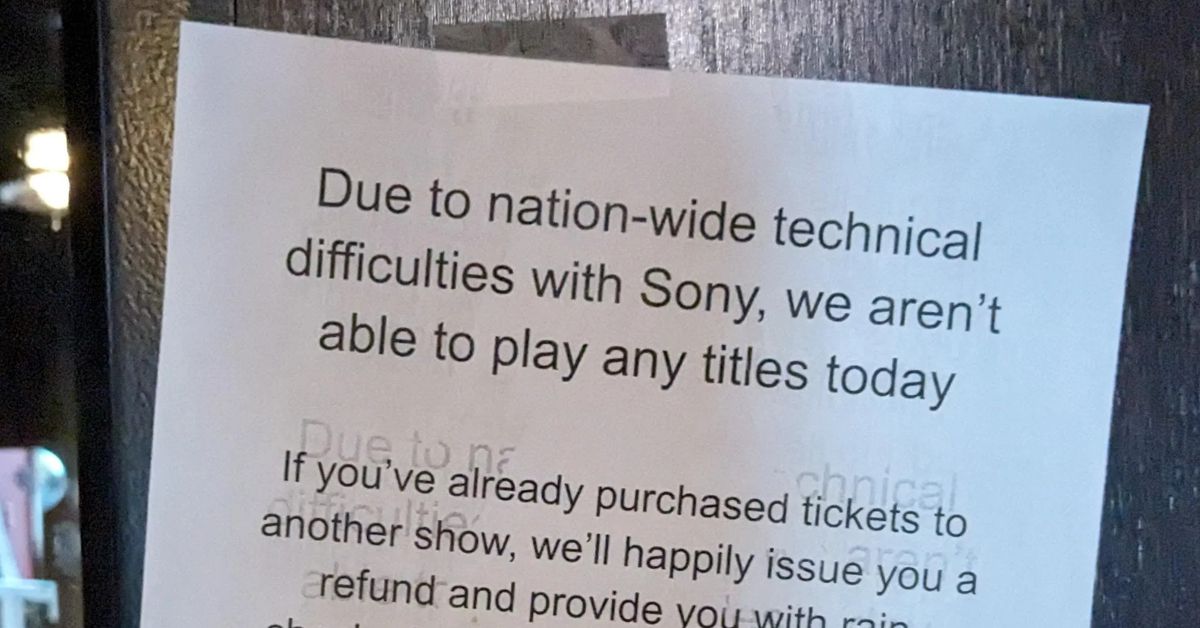From the article:
When we went to our seats, the wait staff let us know that despite the fact that the previews were playing, we wouldn’t know until the movie actually started whether we could see the film or not. If it didn’t work, the screen would just turn black. Luckily, the film went through without a hitch.



Exactly. There is a huge potential safety issue.
I’m sorry, but I think that’s a little far fetched.
Are you really suggesting that we run the risk of being too disconnected to receive emergency messages?! In an age where everyone has a smartphone on their person at all times, as well as at least a dozen internet-connected devices in their homes, offices, classrooms etc?!
You would’ve had a point maybe 20 years ago, but technology has changed a bit since then.
Ah yes, let’s put all our bets on cellphone infrastructure. Because that never goes wrong.
You do know landlines are still a thing, right?
Landlines are not part of the emergency broadcasting system. TV and radio are.
This is like assuming everyone has a car because most people do.
It’s not, because the statement is much more accurate in the case of internet-connected devices, and for emergency messages it’s enough to have someone around you who has one (e.g. a neighbour). I guess it would be really hard to find someone - in the areas where this change is made - who doesn’t have access to such a device in that sense, maybe even impossible.
It’s really more like assuming everyone breathes air because most people do.
Most people don’t have diabetes.
Yeah this was nonsense. Like it is mandated to have a TV always on to receive such emergency broadcasts. Same thing can happen to someone not having or not using a TV
Yes. I’ve lived it. I used to live in hurricane territory and the last couple of major storms I experienced resulted in complete loss of cable internet, T-Mobile and Verizon cell service. I had ample battery backups (and a well-supplied generator) to keep everything on my end up and running, but it didn’t matter. Once we lost utility power, the cable went dark immediately. The cell towers lasted a day or two with very spotty and limited reception and then those went dark too.
Landlines used to still work as long as the lines weren’t physically damaged because of the big battery banks at the central station, but the copper lines are being left to rot and replaced with VOIP that goes out when the power does.
Our communications infrastructure is less robust in an emergency than it was 20 years ago.